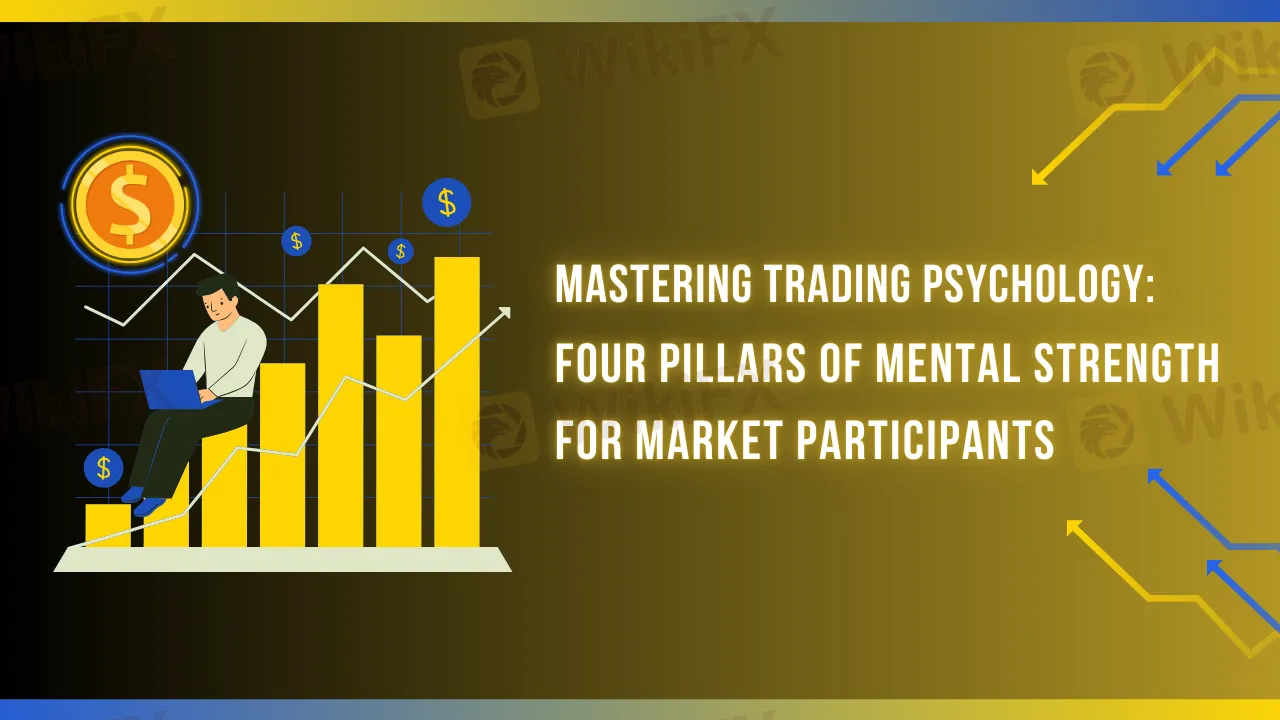Mastering Trading Psychology: Four Pillars of Mental Strength for Market Participants
Abstract:From understanding emotional triggers to maintaining personal well-being, this guide highlights how traders can gain a psychological edge in volatile markets.

In the financial markets, technical expertise and economic knowledge often take the center stage. Yet, many seasoned traders argue that mental discipline holds equal, if not greater, importance. Emotions, cognitive biases, and external noise can significantly influence trading outcomes—sometimes more than any chart or economic indicator.
To navigate the psychological challenges of trading, individuals can follow a structured approach grounded in four essential pillars: self-assessment, strategic alignment, ongoing reflection, and personal well-being.
Understanding the Self: The Starting Line
Effective trading begins with understanding ones own behavioral patterns. Each individual has unique psychological triggers—some may react to loss with hesitation, others with aggression. Recognizing personal tendencies such as impulsiveness, overconfidence, or anxiety is the first step toward managing them.
In addition to emotions, traders must be aware of common cognitive biases. Anchoring to previous price levels, seeking only confirming evidence, or exhibiting loss aversion can skew decision-making. Identifying these patterns early enables better control and a more rational approach during fast-moving market conditions.
External influences also play a role. Social media chatter, sensational headlines, or herd behavior in online forums can cloud independent judgment. Filtering this noise and maintaining a grounded mindset is essential for staying aligned with ones own trading plan.
Building a Personalized Strategy
Once aware of internal tendencies, traders should focus on crafting a strategy that fits their psychological profile. A trader who excels in patience might thrive in longer-term setups, while someone who prefers agility may be better suited to intraday trades.
A key component of strategy development is prioritizing the process over outcomes. This means focusing on trade setups, risk-reward ratios, and execution rather than obsessing over profits. Proper use of stop-loss orders and defined risk management rules also ensures that trades are not dictated by emotions.
Additionally, pacing matters. Overtrading often stems from the belief that more activity yields more success. In reality, well-timed, selective trades often outperform a high-volume approach.
Continuous Review and Adaptation
Markets evolve, and so must traders. Regularly reviewing past trades helps identify recurring mistakes or missed opportunities. Mapping the reasoning behind each decision builds a feedback loop for improvement.
Learning from others also accelerates development. Discussing trade setups with peers or studying historical patterns fosters deeper understanding and strengthens conviction in market scenarios.
Well-being Beyond the Screen
Lastly, mental clarity depends on physical and emotional health. Trading under stress, fatigue, or burnout leads to poor decision-making. Maintaining a balanced lifestyle—adequate rest, physical activity, and time away from charts—helps preserve the focus needed for high-pressure situations.
Conclusion
In trading, success isn‘t solely built on strategy or timing—it also relies on mastering one’s mental framework. By cultivating self-awareness, designing a strategy that suits individual temperament, committing to continuous improvement, and prioritizing well-being, traders can navigate the markets with greater confidence and resilience.
Read more

How to Protect Your Account: 3 Proven Ways to Outsmart Phishing Scams
Cyber threats are evolving fast—phishing scams now look more real than ever. Here’s how you can reduce your risk and stay in control of your online security.

Wondering Why Your International Earnings Come Less Than Expected? It's Because of Forex Markup Fees
You worked for an international project but received payments less than agreed upon. You start wondering whether I remained absent or the client has deliberately reduced the amount. Well, it could be due to forex markup that banks debit. Explore this article to learn more about it.

How AI and Machine Learning are Shaping Automated Forex Trading
Discover how AI and machine learning are transforming forex trading by enhancing data processing, improving forecasting, and providing emotion-free, automated strategies.

7 Forex Day Trading Secrets Every Trader Should Know
Forex day trading secrets revealed! Discover 7 essential tips for success, from mastering technical analysis to risk management and proven profit strategies.
WikiFX Broker
Latest News
Top Wall Street analysts are upbeat about these dividend-paying stocks
Singapore's economy grows 4.3% in second quarter, beating expectations
What WikiFX Found When It Looked Into Emar Markets
MT4 vs MT5 Which Forex Trading Platform Fits Your Needs in 2025?
Stock futures slide on more Trump tariff letters, but are off worst levels of session: Live updates
Short or Long Term: Which to Choose for Double-Digit Returns from Gold Investments?
Gold Soars Above $3,350 as XAU/USD Rallies on Trade Tensions
Asia-Pacific markets trade mixed as investors assess Trump's latest tariff threats; bitcoin hits new highs
What is Forex Trading Simulator?
Switzerland tourism boosted as women's soccer continues record-breaking rise
Rate Calc
